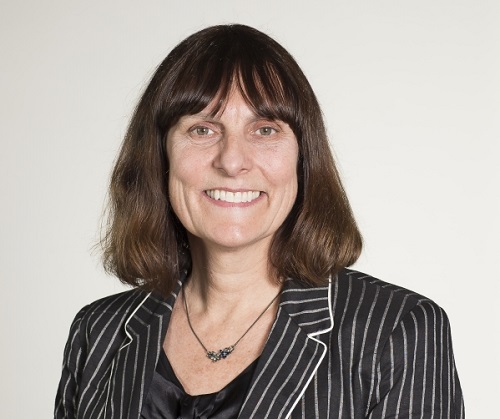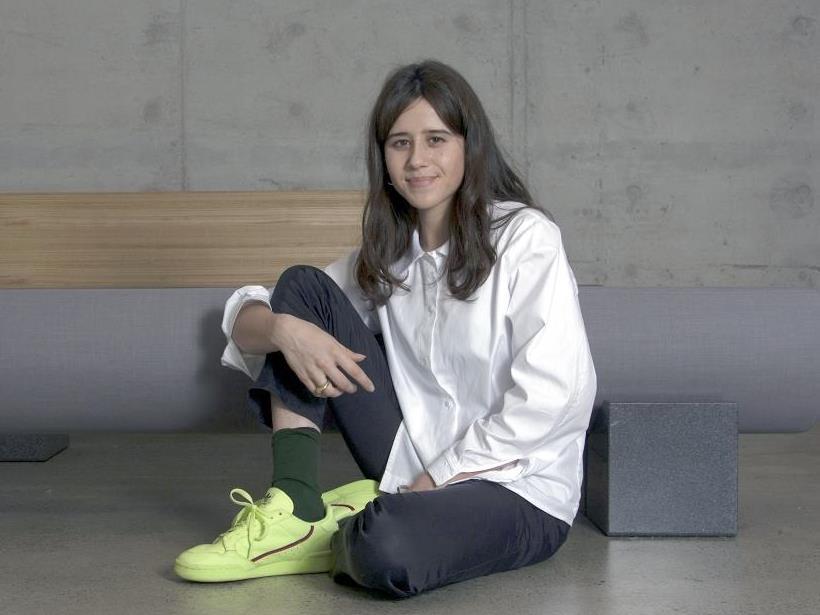Miranda Samuels is Co-Editor of The Countess Report, an exploration of gender representation in the Australian visual arts sector Image: Kieran Butler
The theme for International Women’s Day 2019 (IWD2019) is #betterforbalance, a call to action for driving gender balance across the world. But how can we achieve better balance in the arts? We’ve put this question to a diverse group of women within the Australian arts sector leaving them to interpret the question in a way that relates to them. Their answers are inspiring, insightful and reflective.
How can we achieve better balance in the arts?
Miranda Samuels – Co-editor, The Countess Report
“I think we should be a bit suspicious of words like balance, especially in the arts. To me, ‘balancing out’ suggests a reigning in of outliers or a moderation of radical-ness. Balance is digestible and saleable but we mustn’t let it distract us from critiquing the large, messy and deeply inequitable structural and systemic issues that got us talking about ‘balance’ in the first place. To quote Eva Cox who often quotes a slogan from a ’70s badge: ‘women who want equality with men lack ambition’.”
Nikki Anderson – Director, Feminist Writers Festival
‘Better balance in the arts is diversity on panels and in performances, as well as programming that tackles the issue of gender inequality in every facet of our lives. But also shining a light on our industries: honest and transparent conversations about working conditions, equal pay, merit and selection of staff and talent at all levels.’
Daryl Karp – Director, Museum of Australian Democracy
‘When people talk about balance I immediately think of three things – work life balance, gender equality and diversity. But in my current role as Director of MoAD my current mission/passion is exploring the balancing act between trust and distrust in a healthy democracy. Too much of one and we slide towards apathy, too much the other way and we face anarchy. And within all of this is the need to recalibrate discourse, balancing strong opinion with respectful dialogue. And better representation for women – in parliament, in business, and society – is the ultimate balancing act.’
Elizabeth Campbell – Poet
‘I think in literature some kind of numerical balance can be seen: women dominate in terms of numbers and quality in fiction and poetry, though perhaps not in non-fictional forms. It evens out though when it comes to prize-giving and reviewing, and who is doing the publishing – many studies in the last few years have highlighted the male dominance that continues at that level. That top-end imbalance is reinforced through the wildly imbalanced, but mostly hidden, material realities of women’s lives.
‘Women are still expected to deal individually with the challenges of mothering, creating, and maintaining a personal brand in the hyped networking requirements of the arts. More than this, most must engage with the underpaid, feminised and exploitative labour of the paid arts and education industries within which most creative artists must exist in order to fund their lives and work. The balance needs to come from a giant correction to that base.’
Sonya Suares – Actor, activist and Artistic Director of Sondheim repertory company Watch This
‘Rigour. That’s the short answer.
‘The (slightly) longer one is that I arrive at IWD 2019 once again shaken and devastated by the death of Preethi Reddy. Ten women have been murdered in just 9 weeks. I’m devastated but I’m not surprised. Because as Tarang Chawla, the brother of Nikita Chawla, (amongst my first batch of students at Monash, murdered in 2015), observes, there was no “sinister twist”.
‘Male violence against women is the script.
‘Yet, media insist on turning Preethi’s case into a whodunnit. Even the ABC ran bizarre lines about the custom of arranged marriages in India and how this might put stress on individuals, all the while shying away from the more difficult topic of male socialisation and entitlement to women’s bodies. Or more broadly, how women are valued as equally human. The through line between this and the arts? It’s about how we conduct our cultural conversations.
‘We’ve lost the word “liberation” in discussions of feminism. There is an increasing polemic/ paucity in our discourse that is not helped by the internet. But we must strive against it. There is a well-established link between a porn-soaked culture; a sex industry that profits from the commodification of predominantly women (and children’s) bodies and attitudes around male entitlement to women. Of course it is possible to discuss these links while advocating for the rights of those working within those industries, without implying they are ‘less than’. Just as it is possible to examine the material, sex-based discrimination/ oppression women face, both here and around the world (i.e. continue to discuss women’s bodies within feminist discourse) while being inclusive of the trans community.
‘We need to be prepared to unpack rather than to be so quick to conflate. By rights, the arts should be better at this unpacking than it currently is. We should be leading our cultural conversations. But to lead, we need to diversify our institutions, so we can diversify our perspective. For the sake of rigour. For the sake of progress. For the sake of radical inclusivity – one that looks beyond our backyards to the majority world and endeavours to make it a safer space for all women.’
Emily Brewin – Author
‘In 1938, Cyril Connolly, editor of the British literary magazine, Horizon, made the grand statement, “there is no more sombre enemy of good art than the pram in the hall”.
‘I have written three manuscripts while tending two small people. And while my writing is structured around their needs, I believe the real issue isn’t the pram but a political and cultural system that continues to undervalue the work we do at home.
‘For art to thrive, artists must be supported. Artists who are parents must be supported to keep creating. We need the powers-that-be to recognise this; to back affordable childcare, flexible work arrangements and sophisticated parental leave schemes … and even family friendly artists residencies, which accommodate children, prams and all.’

Jasmin Stephens. Supplied.
Jasmin Stephens – Independent Curator; Mentor Venice Biennale Emerging Arts Professionals Program (in association with Michael Moran, Curator MAMA)
‘Achieving gender balance in the arts is about more than challenging inherited structures and revising our expectations of ourselves and others. In terms of the change that is needed, it’s going to require more than a makeover. At this time we have the opportunity to imagine a greater range of professional pathways and organisational models than ever before – mid-career exchanges of staff between institutions, co-directorships, roles conducted across regional and metropolitan settings, rotations around the globe.
‘Such changes will incur financial costs and there will be personal and collective insecurities to overcome but the flow-on effects will be greater vitality, flexibility, generosity and openness to change. As we look to the future by making these structural changes – new roles, opportunities and expressions of equity will emerge that we haven’t yet fully envisaged.’
Joanne Brookfield – Journalist and Comedy Writer
‘One of the things I noticed when I was writing my book, No Apologies, which is about women in comedy, is that I was frequently being asked “is so-and-so in it?” and I’d say “no”. I interviewed 60 women for the book and every time I was asked that question, it was a different name; which is a nice problem to have, hey? There are so many women out there in comedy now that it wasn’t possible to interview them all. Having said that, I tried really hard to include as many women’s voices as I could – hence the 60 interviewed – and also made mention of another 100+ women in comedy and that still doesn’t feel like adequate coverage of them all. And yet, we still have some room runners trotting out that old nonsense about “I’d book more women it’s just that there aren’t that many in comedy…”
‘There are literally hundreds and hundreds of women gigging in comedy. Hundreds, and yet you can still find line-ups – in good ol’ woke 2019 – that have zero women booked. The other argument often made is that “there’s just more men in comedy, which is why we have more of them on the line-up”. Yeah, but the audience is 50/50 so the line-up needs to reflect your audience. That’s who we stage our shows for, the audience; and the audience need to see themselves up there. So how do we achieve better balance? By making it a priority. By making a conscious choice to ensure your line-up is diverse. Nobody ends up on stage “by accident”. Someone has made a deliberate choice to book the acts, so I suppose the other way to ensure better balance is to vote with your dollars, when you are an audience member, and just support the rooms and productions that demonstrate they care about equality and diversity.’





